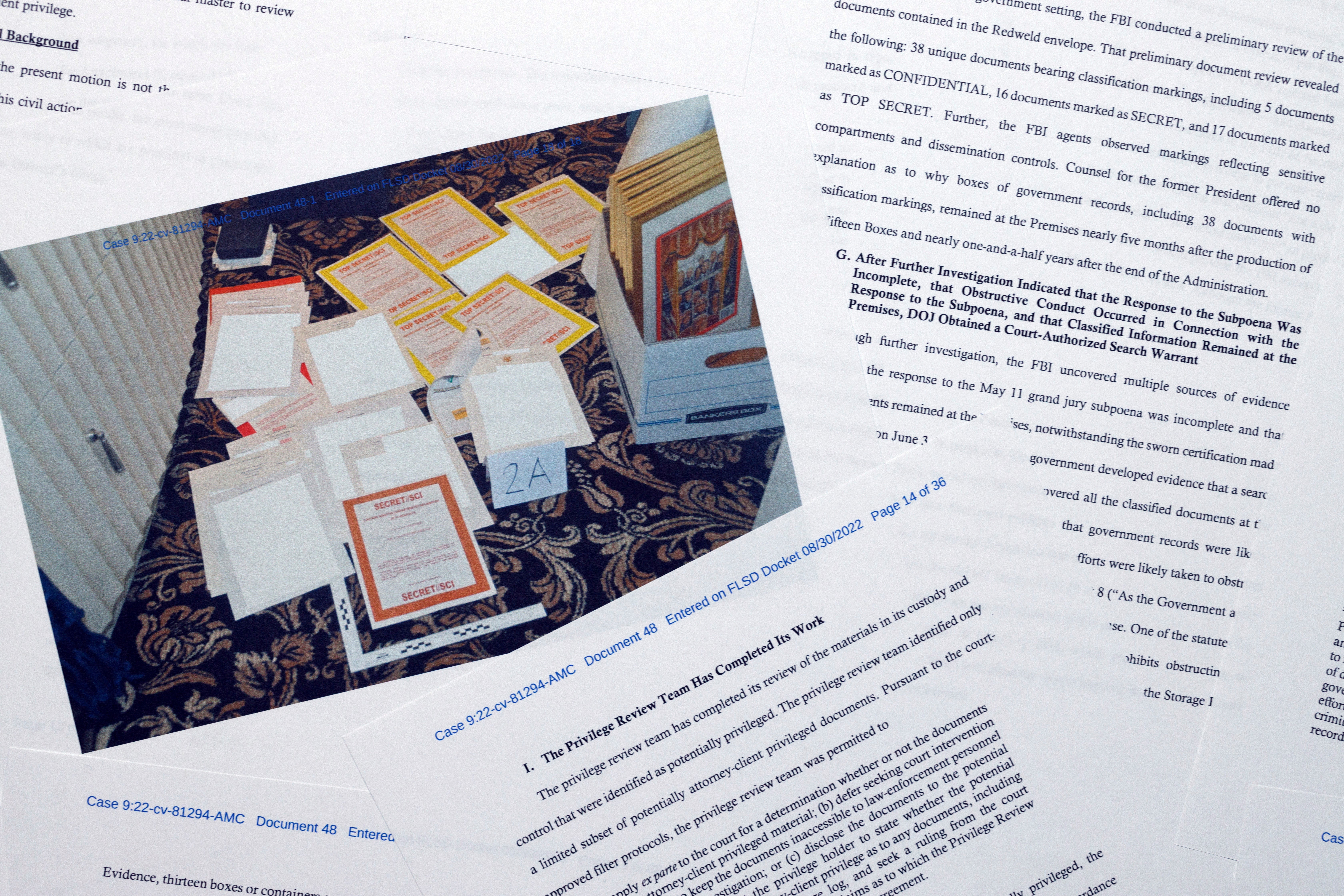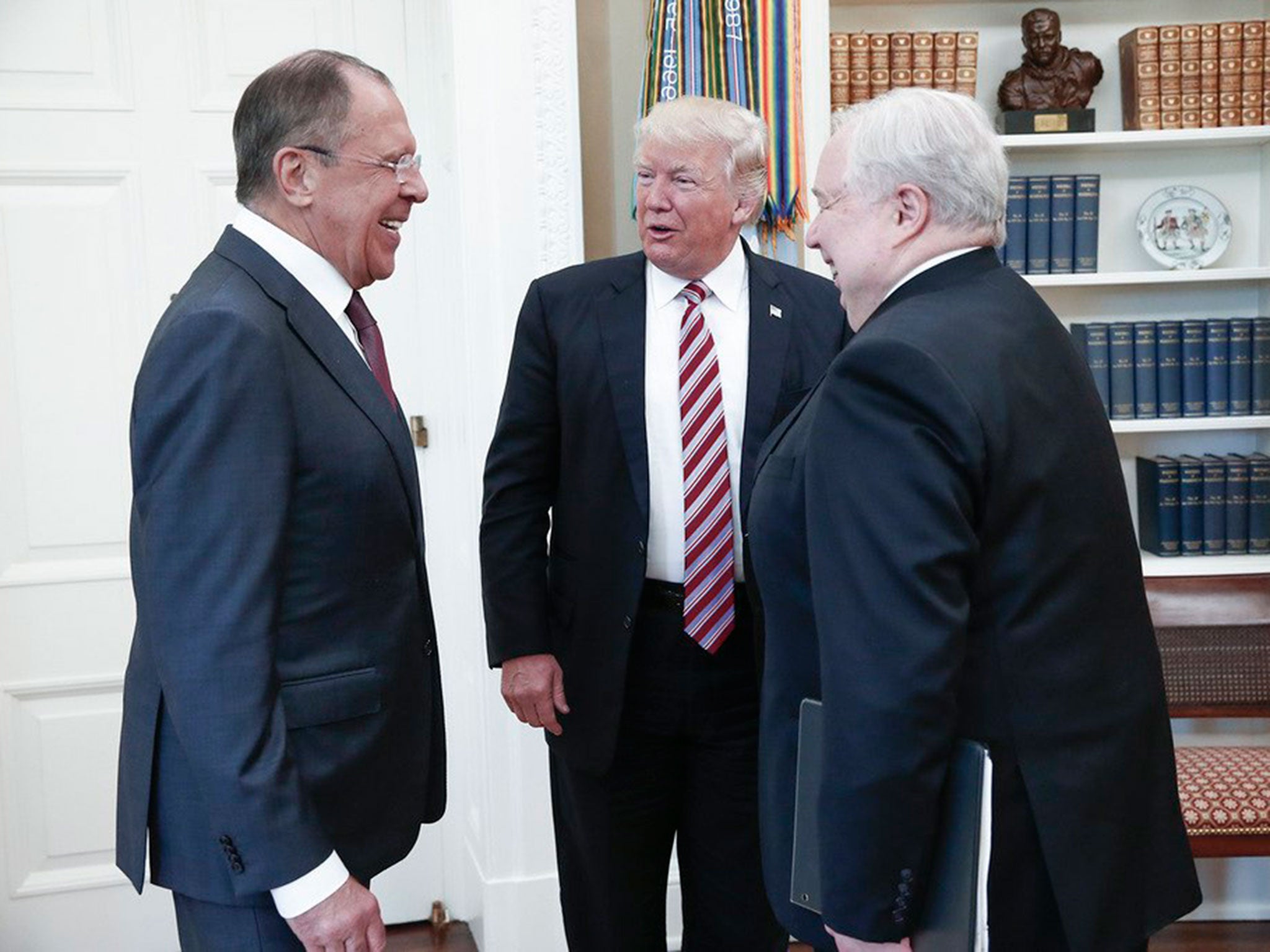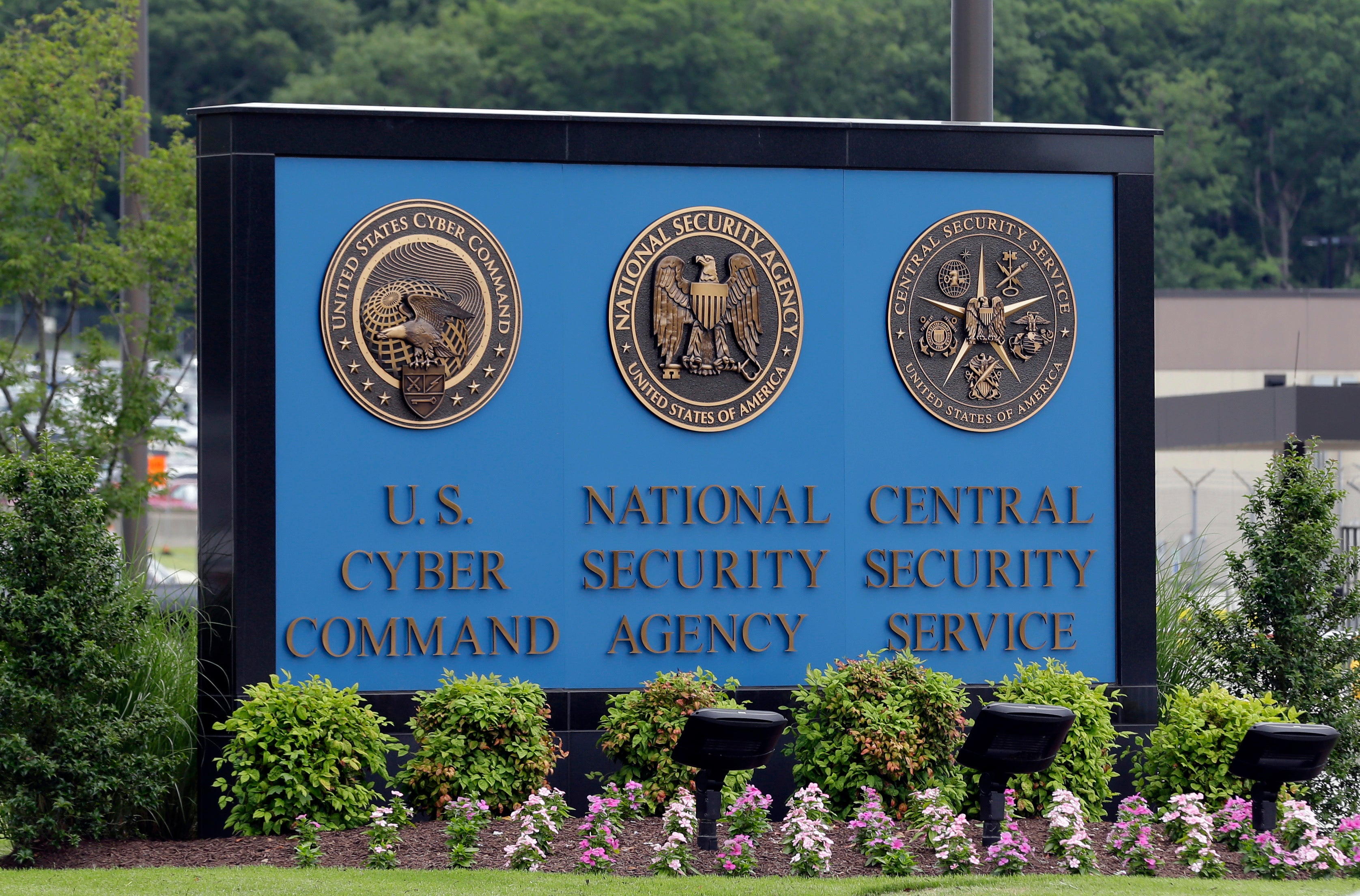‘We’re gonna blind ourselves’: Ex-intel officials say Trump’s document hoarding could ruin years of work
Intelligence experts say efforts to mitigate damage from Mr Trump’s hoarding of classified documents at his Florida home could bring down years-long efforts to cultivate intelligence sources. Andrew Feinberg reports


Former president Donald Trump’s hoarding of highly classified national defence information at the Palm Beach, Florida, home could bring about a level of damage to US intelligence operations not seen in decades, according to current and former intelligence community officials and experts who spoke to The Independent.
A Tuesday court filing from the Department of Justice laid out just how many documents containing America’s most sensitive secrets were recovered from the ex-president over the last nine months.
More than 100 “unique documents with classification markings” were seized from his Mar-a-Lago club during an 8 August search by FBI agents, including three stored in Mr Trump’s desk. Classification levels ranged from confidential — the lowest level of classification in the US system — to the highest, top secret.
The department also said “certain documents” found at Mr Trump’s property bore markings denoting them as containing “sensitive compartmented information”, a designation reserved for extremely closely held secrets often involving intelligence sources and methods or nuclear weapons. Those 100 joined another 38 documents which FBI agents recovered from Mr Trump’s counsel during a 3 June meeting at Mar-a-Lago, plus another 184 documents which National Archives and Records Administration officials brought back from Florida in a set of 15 boxes Mr Trump allowed them to retrieve in January.
Officials with the Department of Justice and Office of the Director of National Intelligence are currently undertaking a review of the documents to assess the damage that Mr Trump’s hoarding may have wrought on US national security.
Because of the stringent US laws governing the handling of such sensitive information, it is unheard of for such documents — especially those containing “sensitive compartmented information” — to be kept in an unsecured, public facility such as Mar-a-Lago, which is a private, members-only club. Documents at the highest levels of classification such as those marked as “sensitive compartmented information” are only supposed to be stored and handled in purpose-built facilities designed to prevent eavesdropping and espionage.
The experts who spoke with The Independent have decades of combined experience dealing with the most sensitive information, ranging from battlefield intelligence meant to disrupt terrorism networks to human intelligence gathered from clandestine assets and the highly technical signals intelligence collected by the National Security Agency.
All of them expressed fears that Mr Trump’s retention of such closely held secrets in a notoriously insecure facility — and one that has long been known to be a target of foreign intelligence services — will lead the US government to undertake what will be a unilateral degradation of American intelligence capabilities, on the assumption that whatever programs described in the papers stored at Mar-a-Lago may already have been or will soon be compromised.
David Priess, a former CIA intelligence officer who delivered daily intelligence briefings to then-FBI Director Robert Mueller and other top officials during the George W Bush administration, told The Intependent in a phone interview that it’s possible that some programmes that may be compromised by Mr Trump’s retention of documents in such a public place could still be salvaged if the documents in question are not specific as to intelligence sources or methods.
But Mr Priess said it was “fair to say” that documents with a high level of specificity being discovered at Mar-a-Lago are likely to lead to individual sources or methods, be they technical or human, being considered compromised by intelligence officials.
“It's likely that some of the information is going to lead to some at least some serious investigation and possibly some actual shutdowns of some collection,” he said.
Another former CIA analyst, who asked for anonymity because they now hold another sensitive position in the US government, said Mr Trump’s retention of documents pertaining to “HUMINT” — human intelligence that is often gathered with the aid of sources recruited in hostile countries over a period of years — could lead intelligence officials to pull the plug on long-running operations and possibly could force them to mount operations to extract operatives or assets to safety.
“There’s a good chance someone at Langley is now trying to figure out how to exfiltrate some very helpful folks from very unfriendly places,” they said.
If intelligence officials must bring a foreign human source to the US for their protection, it would not be the first time such an operation was mounted because of fears that Mr Trump was careless with classified intelligence.
In 2017, the CIA reportedly had to quietly extract from Russia a longtime intelligence source who had tipped the agency off to Moscow’s interference on Mr Trump’s behalf during the 2016 presidential election.
The move was revealed in 2019 by CNN, which reported that CIA officials’ decision to bring the longtime asset— a high-level source in the Russian government whose cooperation had been cultivated over decades — back to the United States “was driven, in part, by concerns that President Donald Trump and his administration repeatedly mishandled classified intelligence and could contribute to exposing the covert source as a spy”.
The extraction operation reportedly took place not long after Mr Trump revealed highly classified intelligence which Israeli officials had provided to the US regarding Isis to then-Russian ambassador to the US Sergei Kislyak and foreign minister Sergei Lavrov during a 2017 Oval Office meeting.

The ex-CIA analyst said they would not be surprised if Mr Trump would again be responsible for the end of long-running human intelligence operations. He posited several outcomes for the extractions that the ex-president’s actions may well necessitate.
“Best case scenario, everything goes well and they’re safe and sound on American shores without anyone figuring out what happened who doesn’t need to know. A worse case is the exfil [exfiltration operation] fails and the asset gets captured or killed, and the absolute worst would be if we need to send American personnel in to bring someone out and they get killed in the process”.
A former counterterrorism analyst who worked for former US Army General HR McMaster in Afghanistan, Colin Clarke, told The Independent that having to bring an end to human intelligence collection programmes and abandon long-time sources will hurt the US in terms of credibility as well as operationally.
“Who’s going to want to work with us if there’s a fear that this will happen again?” he asked. “We may have to risk American lives trying to extract people from dangerous situations, we may be pulling people from ongoing investigations or things that we're working on prematurely, and never seeing them through,” said Mr Clarke, who is now a senior research fellow with the Soufan Centre. He added that there could be “some places” intelligence officials will now have to “abandon and jettison the sources” as a result of Mr Trump’s actions.
Another former CIA operative who spent a decade supervising human sources in Middle East hotspots such as Afghanistan, Jordan and Iraq, Patrick Skinner, told The Independent that the government will almost certainly not dither over whether any human intelligence sources revealed in Mr Trump’s document cache have been compromised by the ex-president’s carelessness. They will instead assume that any documents stored at Mar-a-Lago have been seen by hostile actors and act accordingly.
“Whatever documentation they pull out from those unsecured space, and also with unsecured people just running their mouth about it, you would have to assume that those people are burned,” he said.
Mr Skinner, who now works as a police officer in his hometown of Savannah, Georgia, said the government will have to act as if those human sources are either “in trouble” or being forced to act as double-agents who provide false information. Either outcome means the government will have to “wind down” any programme that depends on those sources.
The ex-CIA case officer told The Independent that these efforts to extract intelligence sources — or shut down any programme that relies on them — will be a significant self-inflicted wound that will harm US intelligence-gathering capabilities.
“We’re gonna blind ourselves so that someone doesn't someone else doesn't blind us,” he said.
Mr Trump’s carelessness and hoarding of secret documents in a public club could also lead to the compromise of electronic intelligence-gathering methods built up over many years.
With signals intelligence, or SIGINT, knowledge of the very fact that certain information is known by the United States could lead a foreign actor to change their communication habits in a way that would lead to them “going dark”, or having their communications inaccessible by US authorities. It could also lead the foreign actor to feed disinformation to the US by continuing to use the communications method that is known to be under surveillance by American intelligence agencies.
In one infamous example of this, a decades-long operation to tap Russian communications cables was compromised by a disgruntled ex-NSA employee, Ronald Pelton.
Pelton, who was released from prison in November 2015, walked into the Soviet Embassy in Washington in January 1980 and sold information about the programme — known as “IVY BELLS” — to the KGB. Soviet officials waited more than a year before acting to remove undersea cable taps which had been placed by a US Navy submarine. During that intervening year, the Soviets were able to use the tapped cables to feed disinformation to the US simply by picking up the phone.

Rick Wilson, a veteran GOP political consultant who co-founded the anti-Trump Super PAC the Lincoln Project, spent the George HW Bush administration working at the Pentagon under then-Secretary of Defence Dick Cheney.
In a phone interview, he told The Independent Mr Trump’s unlawful retention of “sensitive compartmented information” documents pertaining to intelligence gleaned from what he described as “national technical means” — electronic spying — could have allowed “bad actors” to learn a great deal about how the US gathers information about them, including “how we're monitoring their communications, or how we're able to intercept their phone calls, their emails, or messaging”.
“If you ratchet it back 30,000 feet, it could also reveal to people that we don't want to know that they've been targeted, that they're targeted, and you could end up with very bad actors in the world who did not know that NSA was up in their email suddenly, being aware of that and changing the way they're doing business, changing their pattern of communication, their pattern of life,” he said.
He explained that a foreign spy who got wind of Mr Trump’s document cache — which the government has suggested contained information including raw signals intelligence — could have gleaned “exploits and backdoors into intelligence into communications platforms that are kind of the Holy of Holies in the COMMINT (communications intelligence) world”.
Mr Wilson said he has not held a security clearance in many years, but he told The Independent he has heard from former colleagues who are still in the defence world who say the revelations out of Mar-a-Lago have left them “staring at the ceiling, absolutely terrified”.
“There are people who have legitimate fears that these sorts of revelations could get people killed,” he said. “Once you get up to the compartmentalised stuff, you are really talking about very, very consequential matters that could cause, as they say, enormous damage to national security”.
Join our commenting forum
Join thought-provoking conversations, follow other Independent readers and see their replies
Comments


Bookmark popover
Removed from bookmarks